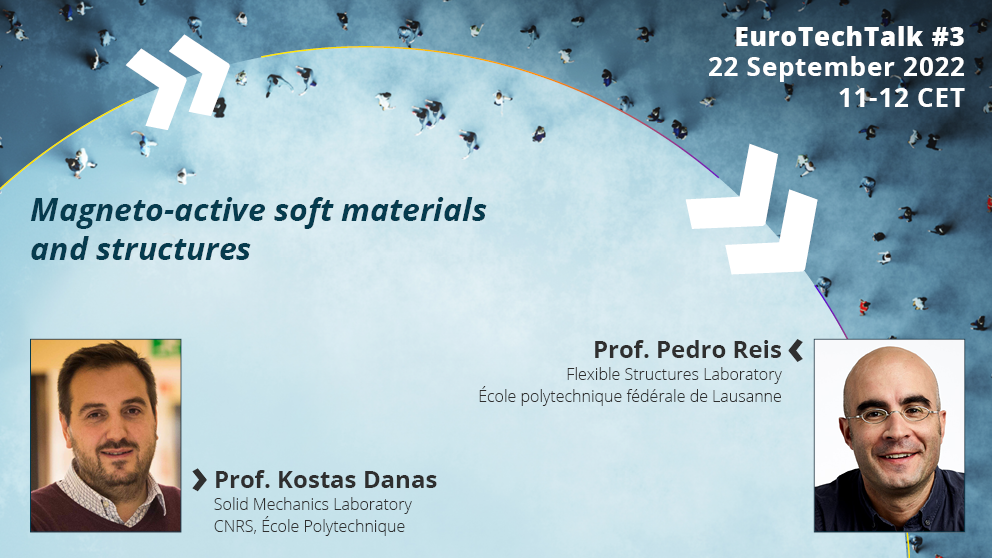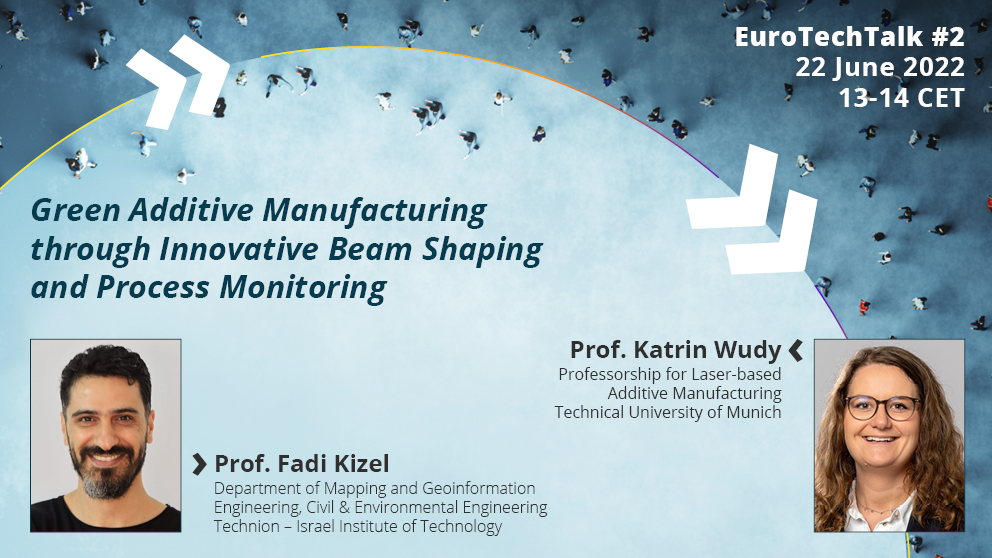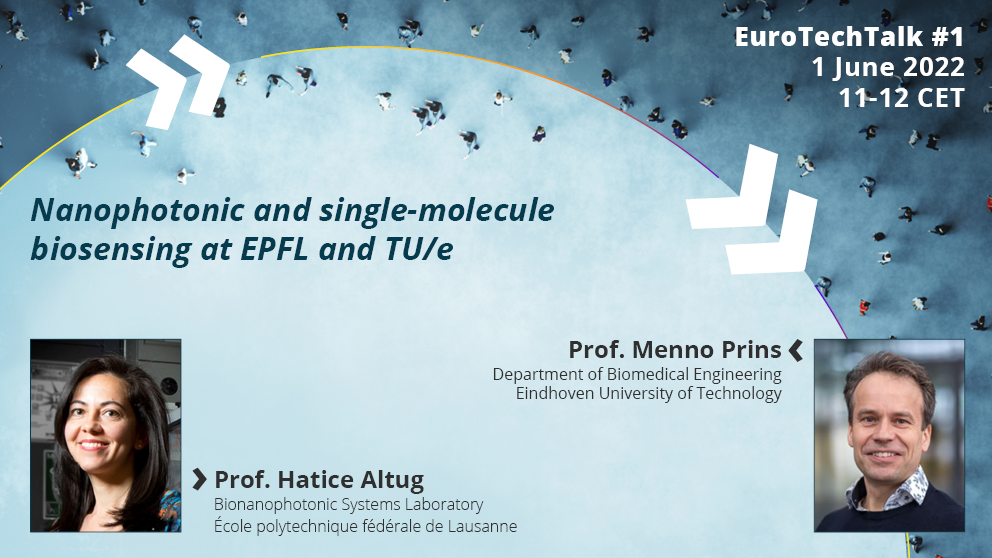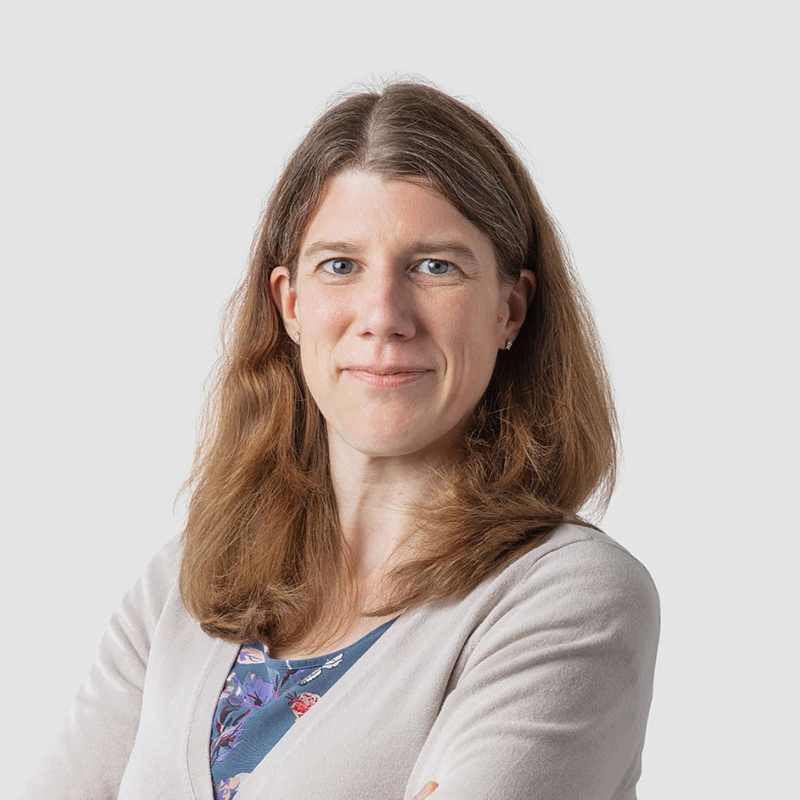“None of us is as smart as all of us,” says American author Ken Blanchard, and rightly so. The cornerstone of the EuroTech Universities Alliance is cooperation. We put a spotlight on some of the excellent collaborative research conducted at the six EuroTech schools.
The EuroTechTalks lecture series gives the floor to renowned researchers from EuroTech Universities who, as a team, introduce us to their work, provide a glimpse into their latest findings, and present selected projects.
Topics
- Pertaining to focus areas of the EuroTech Universities Alliance
Level & audience
- Scientific
- Open to all
Format
- 1 hour, fully online
- Talk followed by Q&A
EuroTechTalks – upcoming
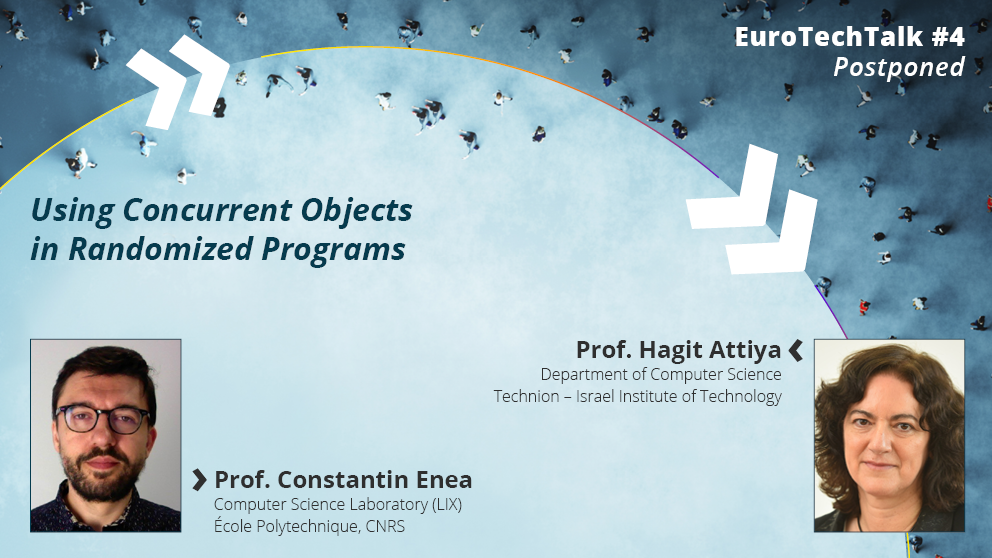
Atomic concurrent objects, whose operations take place instantaneously, are a powerful technique for designing complex concurrent programs. Since they are not always available, they are typically substituted with software implementations. A prominent condition relating these implementations to their atomic specifications is linearizability, which preserves safety properties of programs using them. However linearizability does not preserve hyper-properties, which include probabilistic guarantees about randomized programs. A more restrictive property, strong linearizability, does preserve hyper-properties but it is impossible to achieve in many situations.
In particular, we show that there are no strongly linearizable implementations of multi-writer registers or snapshot objects in message-passing systems. On the other hand, we show that a wide class of linearizable implementations, including well-known ones for registers and snapshots, can be modified to approximate the probabilistic guarantees of randomized programs when using atomic objects.
Speakers:
- Prof. Constantin Enea, Computer Science Laboratory (LIX), École Polytechnique/CNRS
- Prof. Hagit Attiya, Department of Computer Science, Technion – Israel Institute of Technology
Past talks
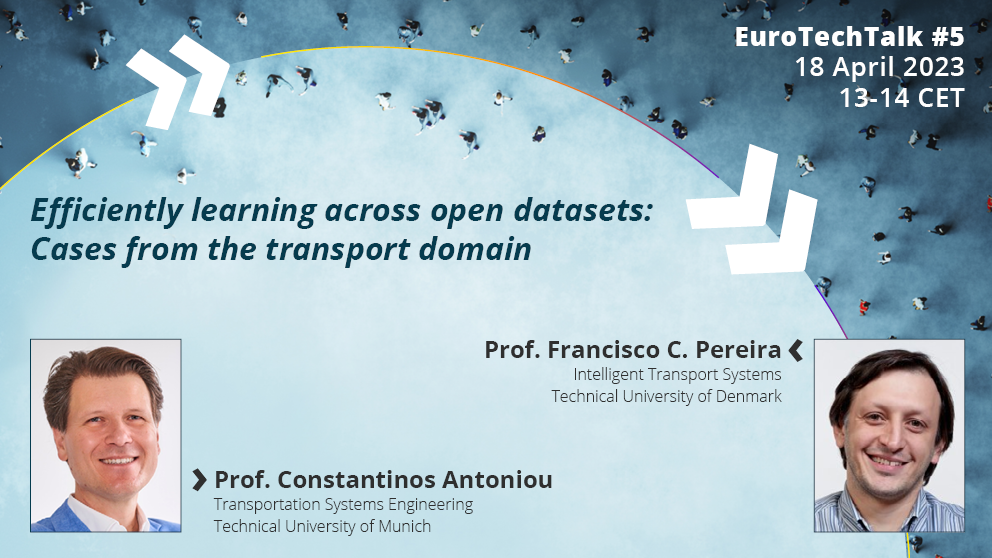
Efficiently learning across open datasets has become increasingly important in the field of machine learning, and has important implications in the Transport field. Transfer learning and meta-learning are two popular techniques that allow models to leverage knowledge gained from one task and apply it to another. Transfer learning focuses on using pre-trained models as a starting point for new tasks, while meta-learning focuses on learning how to learn from as few examples as possible.
In this talk, we will introduce both concepts in the context of Transport research. First, we will discuss transfer learning for traffic state estimation using scalable and non-scalable data from large European cities, and then we will introduce meta-learning for automated fleet rebalancing in Autonomous Mobility on Demand (AMoD) using taxi data from multiple cities.
Speakers:
- Prof. Francisco C. Pereira, Intelligent Transport Systems, Technical University of Denmark
- Prof. Constantinos Antoniou, Transportation Systems Engineering, Technical University of Munich
In this joint seminar, we will present the complementary expertise and recent research of our two groups at Ecole Polytechnique (France) and EPFL (Switzerland) on magnetorheological elastomers (MREs); a novel class of active materials capable of exhibiting a coupled response under external magnetic and/or mechanical stimuli.
These solids are composites comprising magnetic micron-sized particles embedded randomly in a polymer matrix. MREs can be categorized into soft- and hard-MREs. Soft-MREs are typically made of carbonyl-iron particles and tend to exhibit no magnetic dissipation, while they lose their magnetization when the magnetic field is switched off. Hard-MREs, which are made of permanently magnetizable particles (e.g., NdFeB), are dissipative magnetically and retain a remanent magnetization in the ground state; i.e., they are compliant permanent magnets.
In this talk, we will focus on the fabrication, experiments, and modeling of MREs, especially in leveraging their instabilities for function, to deliver configurational and geometrical changes with minimal external magnetic fields. Examples of novel applications related to biomedical devices and soft robots will be discussed.
Speakers:
- Prof. Kostas Danas, Solid Mechanics Laboratory, CNRS, École Polytechnique
- Prof. Pedro Reis, Flexible Structures Laboratory, École polytechnique fédérale de Lausanne
Within the EuroTechTalk, Prof. Kizel and Prof. Wudy will present the cutting-edge research they would like to conduct with 8 other partners in the newly funded EU project InShaPe. The overall aim of the InShaPe project is to develop and demonstrate in different industrial use cases (energy, aerospace and automotive) a novel first-time-right Powder Bed Fusion Process of Metals using Laser Beam (PBF-LB/M). The novel PBF process will be underpinned by two technical innovations:
(i) the flexible adaptation of laser beam shapes tailored to the material/geometry of the printed parts (enabled by a first-of-a-kind optical module for beam shaping enhanced with AI-techniques to determine the right beam shapes); and
(ii) the multispectral in-line process monitoring and control system (enabled by transferring know-how from the multispectral analysis domain into additive manufacturing).
InShaPe will disrupt the manufacturing sector by helping to turn PBF-LB/M from a niche into a mainstream manufacturing technology.
Speakers:
- Prof. Katrin Wudy, Professorship for Laser-based Additive Manufacturing, Technical University of Munich
- Prof. Fadi Kizel, Department of Mapping and Geoinformation Engineering, Civil & Environmental Engineering, Technion – Israel Institute of Technology
- Prof. Menno Prins, Department of Biomedical Engineering, Eindhoven University of Technology
- Prof. Hatice Altug, Bionanophotonic Systems Laboratory, École polytechnique fédérale de Lausanne

